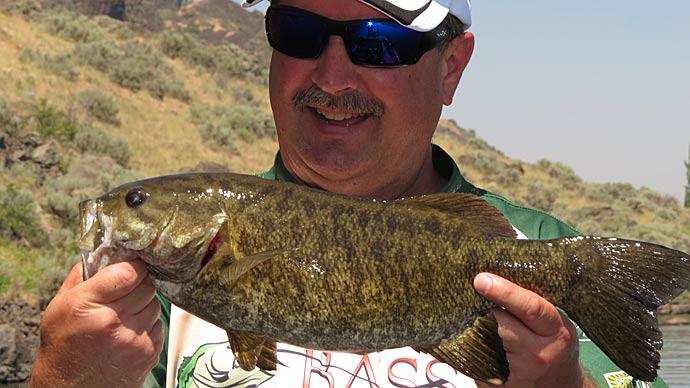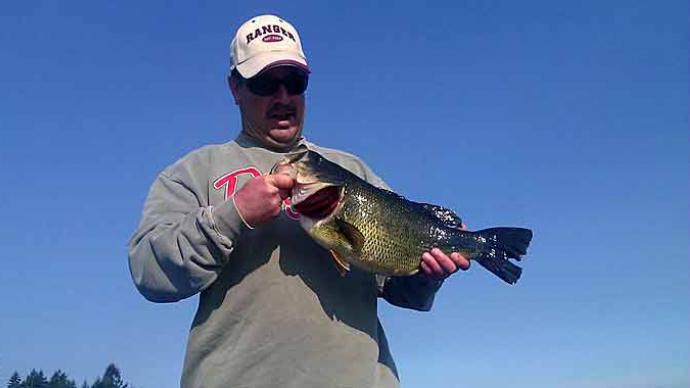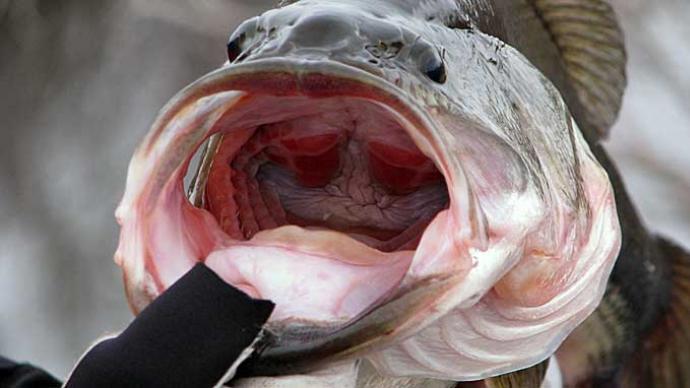Learn from Hank Parker his seasonal approach to bass fishing you can use year round to find and catch big bass.
Visit Hank Parker's site: http://www.hankparker.com/
or on Facebook: https://www.facebook.com/hankparkersoutdoormagazine/
Transcript:
Glenn: Hey folks, Glenn May here with BassResource.com and I'm here with Hank Parker. We've been out on the water fishing today for a while, and it's getting kind of warm out so we thought we'd take a break and answer some of your questions here on another episode of "Hank Parker's Fishing Tips". So, Hank, this week's question comes from Chris from Charleston, Indiana, and he wants to know what is your seasonal approach to catching bass year-round?
Hank: Well, you know, different parts of the country have different seasons and some places are not affected as much as others. You know you go to Lake Okeechobee in Florida, for example, you don't have a real slow, cold winter bite like you do in North Carolina where I live so...
Where I started fishing, you know, I stayed basically North and South Carolina and in the wintertime, it's really, really important to slow down. And I learned, early on, fish aren't nearly as deep as I used to think they would be in the wintertime. On those real cold days, I would think that the fish would be really, really deep, and that's not the case at all.
Most of the fish that I caught in the cold wintertime when the water temperature was 50 degrees or right around that 50-degree mark, and I didn't catch very many fish when the water was under 50 degrees in North Carolina or South Carolina. So that's kind of a make-or-break temperature for North and South Carolina, that 50-degree mark. But fish were always in that 8, 9, 10-foot rather than at 20 and 30-foot water for me. And the watercolor where I lived, Lake Wylie, Lake Norman, Lake Gaston, Buggs Island, you know, we didn't have super clear water.
So wintertime fishing, slow down. Spring, be as aggressive as you feel like, be in pre-spawn. Every season is a little bit different, but I wanna say I break it down in the everyday. Days are different, hours are different.
My son Ben in fishing tournaments for a long time and he would find fish and practice and expect them to be the same the next day when the tournament started. It never is. It's a changing process.
So even though you got a season and you can say, "Rule of thumb, fish are gonna be on the backs of the coves in October and November," and that's pretty much a rule of thumb. April, May they're gonna be spawning, they're gonna be in the shallows, they're gonna be in the bushes, they're gonna be on flanks, March, April, May. And I'm talking North and South Carolina here, so that varies. Summertime, as soon as the May spawn is over, they're gonna move out and get on the ledges for summertime fishing.
So you've got a system that you have but it changes every day. You get a good, cloudy day and those fish may be out there on the ledges, but they may come around the shoreline and you catch one with topwater bait, even though there are a lot of fish still on the ledges.
So even though there are seasons and seasonal patterns, I approach a lake on a daily basis.
Glenn: That's probably the best way to do it, let the fish tell you what to throw and how to catch 'em.
Hank: I'm telling you, it just changes and there is a rule of thumb, but, boy, that rule gets broken a lot. You know, the weather varies, temperature, wind blows, the bait comes in on a point and all of a sudden, here it is, July and you're catching fish out of a foot of water.
Glenn: Yeah, that's gonna happen.
Hank: So you've gotta be able to adapt.
Glenn: Yeah. They don't read the same books we do, do they?
Hank: They don't. They don't.
Glenn: Well, Chris, I hope that answers your questions. For more tips and tricks, visit "Hank Parker Outdoors." Or if you wanna be notified the next time we post some of Hank's tips, subscribe to our channel. Till then, have a great day.



